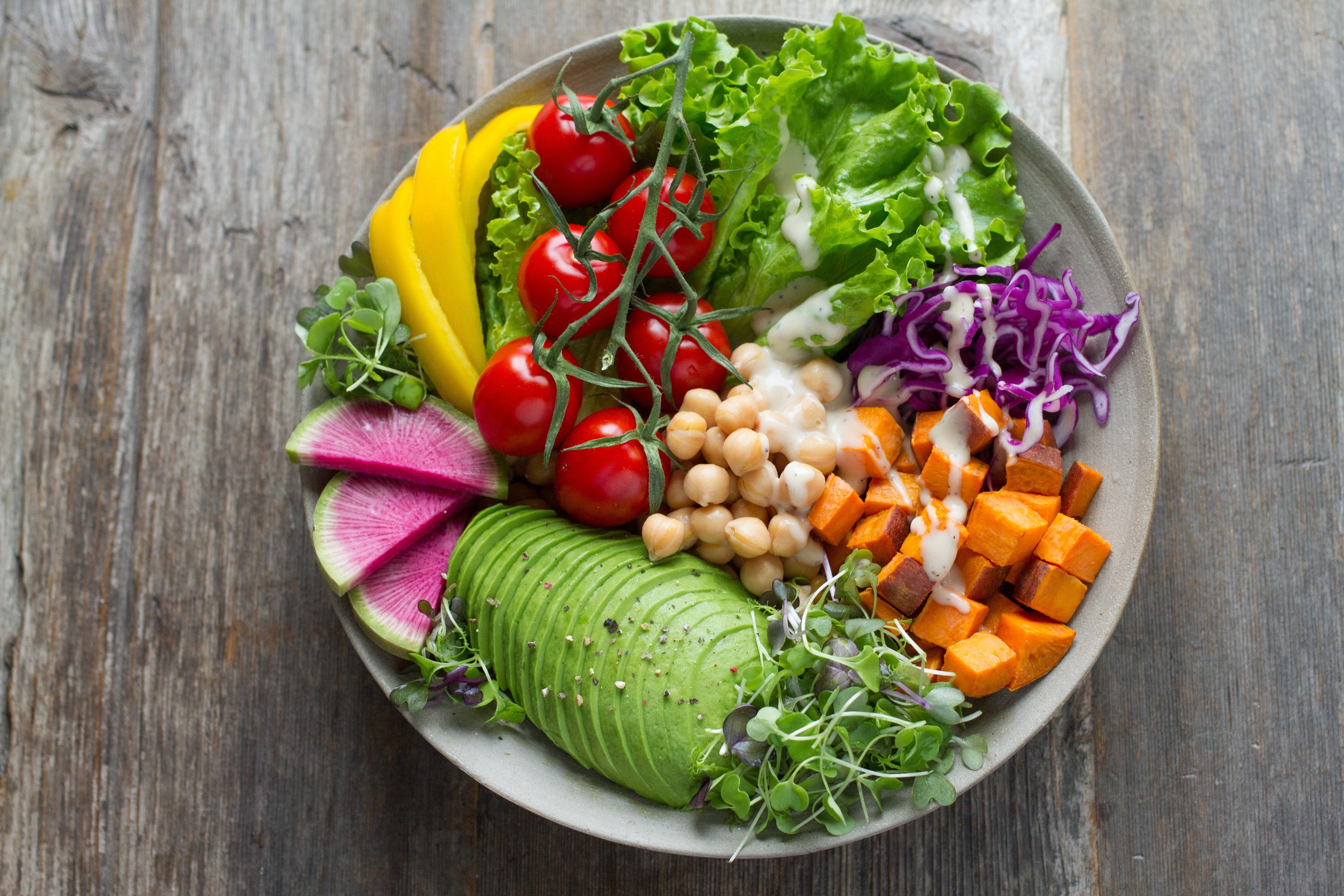How to Leverage Nutrition to Optimize the Gut Microbiome

By Linda Antinoro, Registered Dietician
One of the most intriguing aspects of our biology is our interconnectedness with other organisms. Indeed, a 2019 study found that our gut microbiome – which refers to the trillions of bacteria, fungi, viruses, and parasites which call our body home – contains more genes in its collective DNA than there are stars in the observable universe [1].
A growing body of research suggests that our microbiome has a profound impact on our health, in a variety of ways. As we slowly begin to unravel the mystery of the microbiome, a practical question emerges: what can we do on an individual level to optimize it?
A Microbial Balancing Act
It’s first important to grasp the key role that bacterial cells play in either helping or hindering our health. Broadly speaking, “good” bacteria are categorized as such due to their ability to digest food, synthesize vitamins and hormones, detoxify carcinogens and activate health-promoting compounds.
Microbial taxa such as Roseburia hominis and Agathobaculum butyriciproducen, as one example, are known to produce a short-chain fatty acid called butyrate, which has been proposed to exert a myriad of cardioprotective effects in humans [2]. This is just one of many recent discoveries that highlights how certain strains of bacteria can positively impact our health.
Not all microbes, however, are positive. Some have been shown to cause inflammation, and others to hinder the immune response [3].
The key, therefore, is ensuring that good bacteria thrive and that “bad” bacteria are kept fully in check.
Dietary Influences on Microbial Diversity
As it turns out, the foods we eat directly influence which bacterial strains thrive and which die off. Indeed, recent research suggests that diets rich in many of the foods most of us already deem “healthy” (e.g., unprocessed plants and animals) are associated with enhanced microbial diversity (which seems to be health promoting) as well as the proliferation of beneficial microbes [4].
Not surprisingly, whole grains, fruits, vegetables, nuts/seeds, legumes, fish, eggs and poultry are correlated with “good” bacterial strains while items like sweets, refined grains, fruit juices and other sweetened beverages are linked with the presence of “bad” bacterial strains. Presumably, the presence of fiber coupled with less sugar and fewer highly processed foods contribute to the optimal bacterial profile.
To illustrate just how critical the microbiome is to our body composition and overall health, the researchers who performed the study mentioned above, as part of their analysis, found that shockingly, visceral fat was more tightly correlated to gut microbiome composition than it was to body mass index.
Implications for Diabetes
In one study, researchers found that high fiber intake promoted the proliferation of bacterial colonies which had a positive effect on blood panels of people with Type 2 Diabetes. Specifically, those who consumed a high-fiber diet saw reductions in a marker of blood glucose called Hemoglobin A1C [5].
The Benefits of Fermented Food
In another study, researchers assessed the effects of fiber as well as fermented foods such as yoghurt, kefir, kombucha and kimchi on the gut microbiome and the immune system. 36 healthy adults were randomly assigned to a 10-week diet that included either high-fiber foods or fermented foods [6].
After 10 weeks, microbial diversity remained stable in the fiber-consuming group but increased in the fermented food group. Beyond changes in microbial diversity, there was a reduction in blood inflammatory markers in the fermented-food group that wasn't seen in the fiber group. While fiber is certainly beneficial for gut bacteria, this study suggests adding fermented foods into your diet may provide an additional benefit.
Bottom Line
While much about the gut microbiome is still to be discovered, it’s clear that our nutritional choices go a long way in determining whether our good gut flora flourish, and in turn, whether our health follows suit.
To leverage your nutrition to supercharge your gut microbiome, you don’t need to reinvent the wheel. Just ensure you consume plenty of unprocessed foods rich in fiber daily. For even greater effects, consider including fermented foods like kimchi, or kefir.
Video: How the Food You Eat Affects Your Gut
References
[1] Tierney, B. T., Yang, Z., Luber, J. M., Beaudin, M., Wibowo, M. C., Baek, C., ... & Kostic, A. D. (2019). The landscape of genetic content in the gut and oral human microbiome. Cell host & microbe, 26(2), 283-295.
[2] Amiri, P., Hosseini, S. A., Ghaffari, S., Tutunchi, H., Ghaffari, S., Mosharkesh, E., ... & Roshanravan, N. (2022). Role of Butyrate, a Gut Microbiota Derived Metabolite, in Cardiovascular Diseases: A comprehensive narrative review. Frontiers in Pharmacology, 4178.
[3] Hrncir, T. (2022). Gut Microbiota Dysbiosis: Triggers, Consequences, Diagnostic and Therapeutic Options. Microorganisms, 10(3), 578.
[4] Asnicar, F., Berry, S.E., Valdes, A.M. et al. Microbiome connections with host metabolism and habitual diet from 1,098 deeply phenotyped individuals. Nat Med 27, 321–332 (2021). https://www.ncbi.nlm.nih.gov/pmc/articles/PMC8353542/
[5] Zhao, L., Zhang, F., Ding, X., Wu, G., Lam, Y. Y., Wang, X., ... & Zhang, C. (2018). Gut bacteria selectively promoted by dietary fibers alleviate type 2 diabetes. Science, 359(6380), 1151-1156.
[6] Wastyk, H. C., Fragiadakis, G. K., Perelman, D., Dahan, D., Merrill, B. D., Feiqiao, B. Y., ... & Sonnenburg, J. L. (2021). Gut-microbiota-targeted diets modulate human immune status. Cell, 184(16), 4137-4153.














